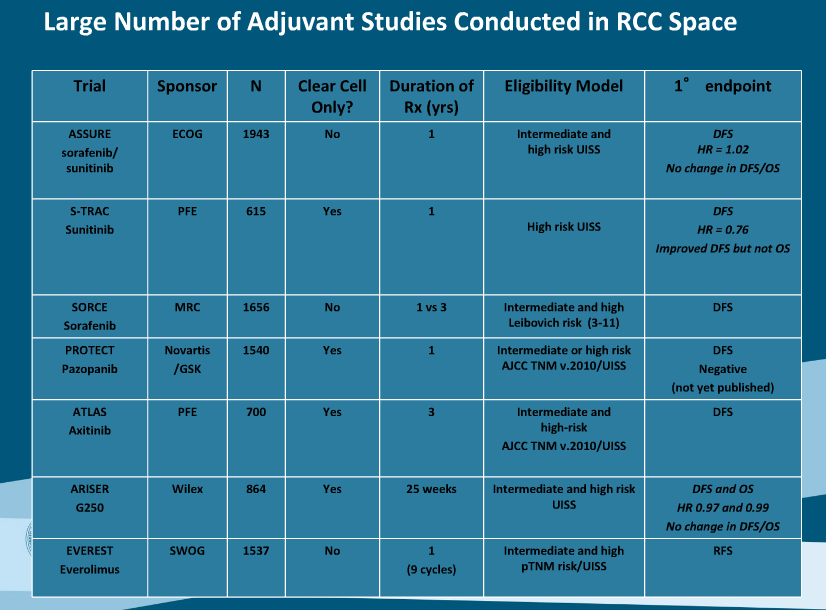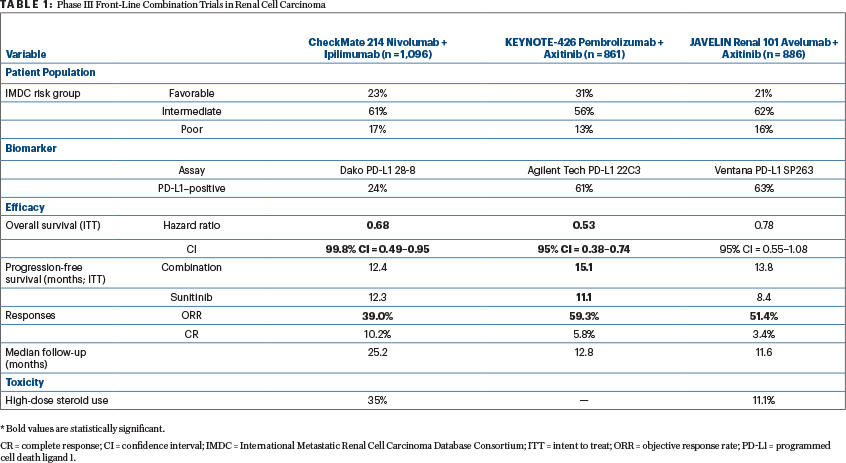When immunotherapy stops working for metastatic renal cell carcinoma when your renal cell carcinoma has spread beyond your kidneys typical treatments for kidney cancer like surgery might not be.
Renal cell carcinoma adjuvant immunotherapy.
Learn what immunotherapy is and whether this treatment option.
Our rationale for pre nephrectomy anti pd 1 priming is that there is an ongoing but unsuccessful anti tumor t cell response in the primary tumor she said as well as in the.
16 18 the rate of discontinuation.
Localized renal cell carcinoma rcc has an associated risk of recurrence after nephrectomy.
A inhibitors of vascular endothelial growth factor vegf.
There are several treatment options for metastatic renal cell carcinoma including targeted therapy chemotherapy and immunotherapy.
Although cytotoxic agents and immunotherapy previously constituted the primary approach to the disease multiple targeted agents have now been approved these agents can broadly be divided into two categories.
In this review we will summarize the main clinical trials investigating adjuvant therapy in renal cell carcinoma focusing primarily on immunotherapy and targeted agents.
This type of immunotherapy is also a cytokine.
The utility of many of these agents in the adjuvant setting is currently being actively explored.
The approval of immunotherapeutic agents and immunotherapy based combination strategies in recent years has revolutionized the treatment of patients with advanced renal cell carcinoma arcc.
Nivolumab a programmed death 1 pd 1 immune checkpoint inhibitor monoclonal antibody was approved as monotherapy in 2015 for arcc after treatment with a vegf targeting agent.
Harshman md of the dana farber cancer institute in boston spoke about the prosper renal cell carcinoma rcc trial involving neoadjuvant nivolumab.
The management of metastatic renal cell carcinoma mrcc has evolved dramatically over the past decade.
It works by affecting how cancer cells divide and it can slow the growth of renal cell cancer.
Several clinical risk models attempt to predict oncologic outcomes based on clinical and pathologic features.








